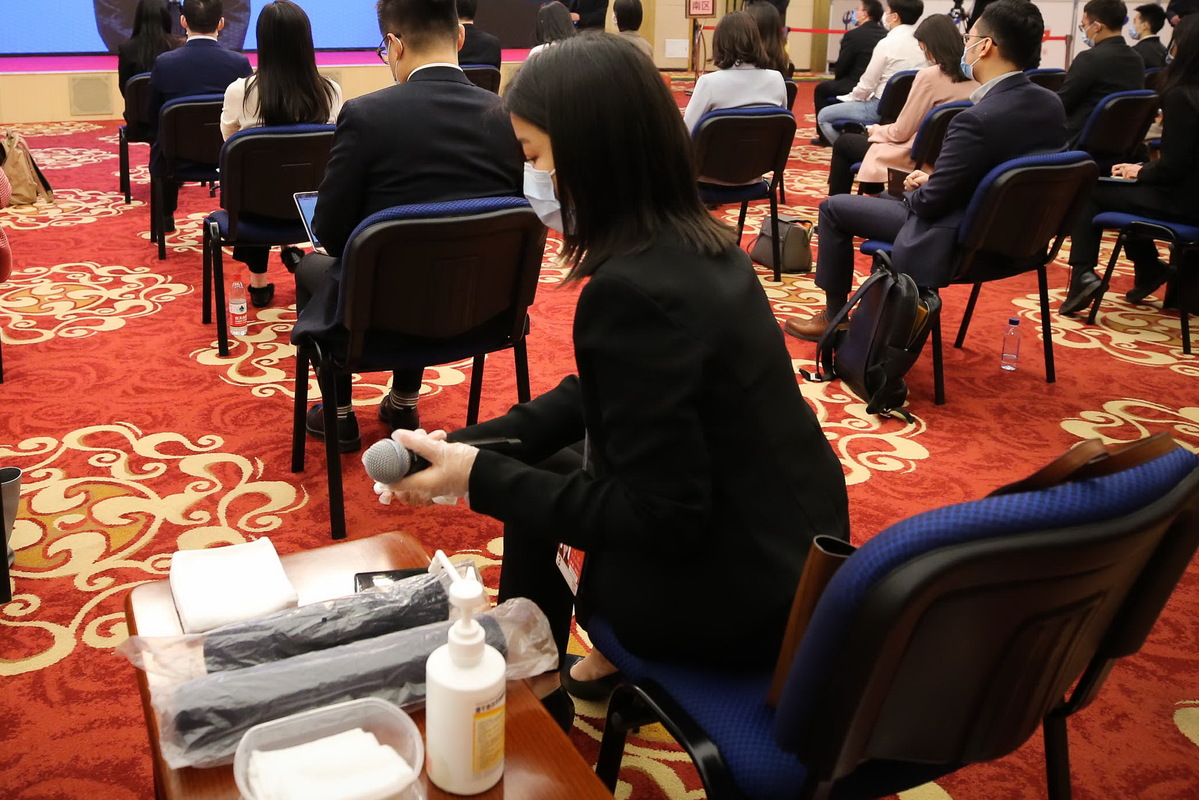Epidemic control in full effect at delegates' hotel

Reporter's Log

As a first-timer to China's biggest annual political event, I'm surprised but reassured at how strict the epidemic prevention and control measures are at the Beijing hotel where I'm staying, which is hosting the Anhui and Gansu provincial delegations of deputies to the National People's Congress.
China has not reported any locally transmitted COVID-19 cases since Feb 14, nor has the capital since Jan 29, but epidemic prevention measures are still in place.
Before I arrived at the hotel, I had received two COVID-19 vaccine injections. All the deputies and hotel staff have also been vaccinated.
Upon my arrival, the first thing I had to do was take a nucleic acid test for COVID-19. Masks, hand sanitizer and alcohol wipes are provided in the rooms and at hallway, lobby and canteen entrances.
An automatic thermometer is placed at the canteen entrance to make sure all people entering it have a normal body temperature. We are told to keep 1 meter apart from each other when lining up for the buffet. The tables-which usually seat 10 but can only accommodate six now-are divided by Plexiglas barriers.
During the seven-day session, deputies can only leave the hotel for the Great Hall of the People to attend full meetings via charted buses. For the rest of the time, they have to stay at the hotel and participate in group discussions.
A dozen deputies from the Anhui delegation practice traditional Chinese boxing for around half an hour every night. They told me it is an activity that has persisted from last year, when similarly strict epidemic containment measures were introduced.
Such measures might seem troublesome, but everyone follows them voluntarily. They have become the "new normal" that Chinese people have gotten used to since the fight against the novel coronavirus began more than a year ago.

However, thanks to the joint efforts of the entire nation, the two sessions are being held at the customary time of early March. Last year, the two sessions were postponed to May because of the epidemic.
About 3,000 national legislators and 2,100 national political advisers have gathered in Beijing to deliberate on government work reports and give suggestions on important tasks. The successful opening of the two sessions sends a clear message that China has managed to contain the epidemic, and we're confident that life can go on.
I went to Wuhan in April after the city's lockdown was lifted to report on how the local people recovered from the worst epidemic they'd ever experienced.
I stayed there for 38 days, and what impressed me most was that the epidemic control and prevention measures implemented in the city had become part of residents' lives.
Almost all people wore masks in public places, even when temperatures rose to more than 30 C in May.
They had seen firsthand the sacrifice and trauma brought by the epidemic, and they knew that adhering to the measures was the best way to prevent it from happening again, to protect themselves and their loved ones and to move on with their lives.
Such unity and awareness, which is also evident among national lawmakers and political advisers at the two sessions, is a key factor behind China's success in containing the disease.
- China's 'Ice City' cracks down on ticket scalping in winter tourism
- Iron stick yams revitalize Wenxian county
- Party chief of Guilin under investigation
- Two radio telescopes put into use to support deep space exploration
- Joint action transforms Mekong region
- Suspects in giant panda rumor case transferred to prosecutors




































